Books
Simon Lelic: the books that inspired The House
The best advice anyone can give a writer is read. Read, read, read. To which I would add: as widely as possible. Because you never know where your inspiration will come from. Here is a list of books that, one way or another, inspired me to write The House.
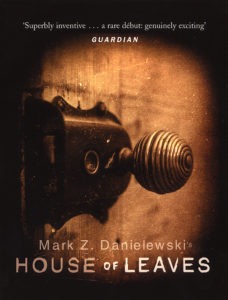 House of Leaves by Mark Z Danielewski
House of Leaves by Mark Z Danielewski
The house Jack and Syd buy in The House is at the heart of the story. It is both the setting for the novel and a stage, in more senses than one. And although it represents Jack and Syd’s freedom (they believe), it also eventually comes to feel more like a prison. The same could also be said about the house that sits at the centre of Mark Z Danielewski’s House of Leaves. Unlike my novel, this is an out-and-out haunted-house story, and about the most inventive I have ever read. More than that, it is one of the most inventive novels I have read in any genre.
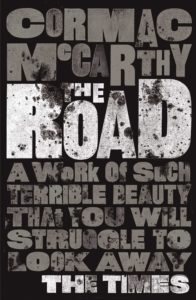 The Road by Cormac McCarthy
The Road by Cormac McCarthy
Technically and philosophically, this is probably not McCarthy’s best book. His masterpiece, probably, is Blood Meridian – although I also love Child of God. And Outer Dark. And… Well, everything else McCarthy has produced. But The Road, I would say, is my favourite of his novels (and one of my favourite novels of all time), if only for the devastating portrait he paints of a father’s love for his son. And of course fatherhood is one of the central themes of The House. I must have read The Road four or five times now (I’ve seen the film, too, but only once and never again). Devastatingly simple, yet dazzling in so many ways, this is the book I wish I had written.
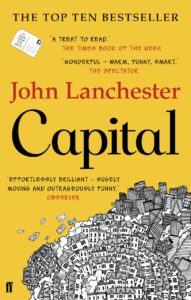 Capital by John Lanchester
Capital by John Lanchester
Not a crime novel or a thriller, but a book about community (or lack of it) on a single London street. I love that central premise, in the same way I love the idea of any story that has such a constricted setting. The more constricted, actually, the better (Alfred Hitchcock’s Rope, in my mind, is the apotheosis of this idea). Writers are often berated for using stereotypes in their fiction, but here Lanchester employs them (archetypes, might be a better word) to devastating – and hilarious – effect.
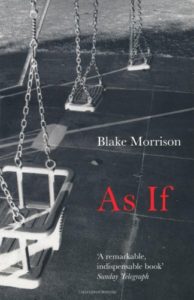 As If by Blake Morrison
As If by Blake Morrison
Like The Road, this is another work (non-fiction, this time) I could read again and again – were it not so intensely heartbreaking. Although actually, that hasn’t stopped me, and nor should it any parent, son or daughter. ‘They fuck you up’, Larkin famously said of your mum and dad, and Morrison sympathetically and compassionately shows just how painfully true this dictum is, as well as shining a light on how perilously close we all are to accepting violence and needless cruelty.
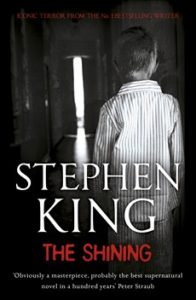 The Shining, Stephen King
The Shining, Stephen King
Quite honestly, I could have picked any one of Stephen King’s scores of books, and I waver on whether The Shining is even my favourite. (It isn’t. IT is. Or The Stand. Or On Writing, although does that count? Maybe it’s The Shining after all…) But as another example of a brilliantly executed haunted-house (sort of) story, as well as a devastating portrayal of a family coming apart, The Shining probably most directly influenced The House. King’s characters are flesh and blood; his tone and technique masterful. If you haven’t read The Shining, what are you waiting for? Oh, and again: don’t bother with the film.
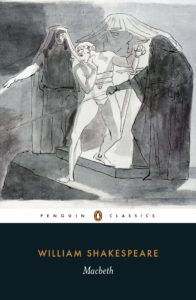 Macbeth by William Shakespeare
Macbeth by William Shakespeare
OK, so technically this is a play, but how could I leave this out? I re-read (and watched) Macbeth several times in the months prior to me starting The House. There is nothing I can add to the mountains of criticism that already exists on Shakespeare’s finest (in my utterly inexpert opinion) play, save to say that, in terms of The House, it showed me how a story so apparently reliant on unremitting darkness and hideously flawed characters can transcend both of these things. As Charles Dickens put it, ‘I have yet to learn that a lesson of the purest good may not be drawn from the vilest evil.’
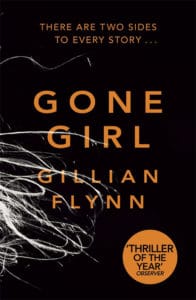 Gone Girl by Gillian Flynn
Gone Girl by Gillian Flynn
I couldn’t leave this out. Another ‘dark’ story that captivates in spite of its thoroughly unlikable central characters, with twists aplenty and a pace that never lets up. A masterclass in he said/she said storytelling – and indeed in crime fiction generally. Probably because Flynn was involved in the screenwriting, the film was pretty good, too!
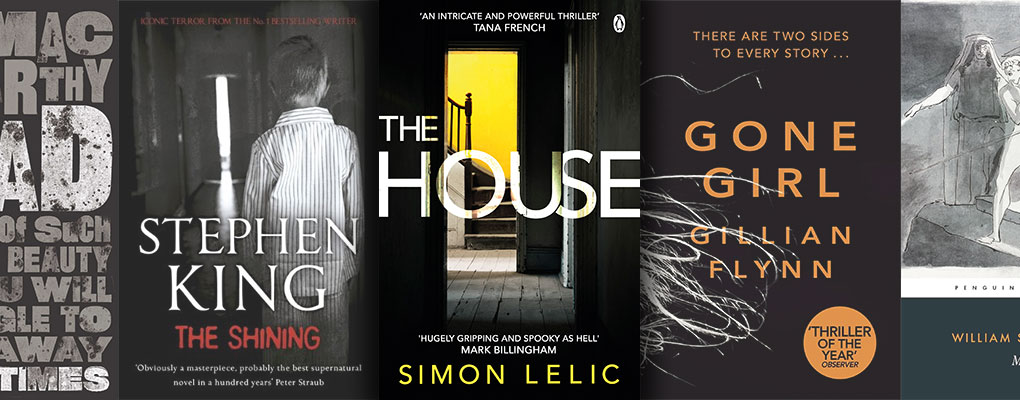


Please note: Moderation is enabled and may delay your comment being posted. There is no need to resubmit your comment. By posting a comment you are agreeing to the website Terms of Use.